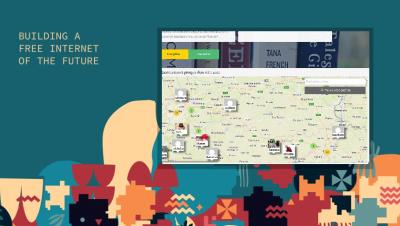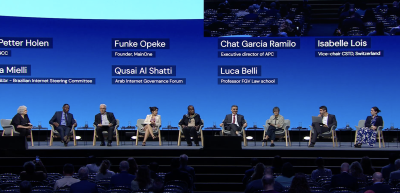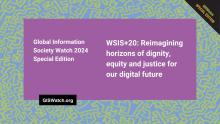We work for people, especially those facing discrimination and oppression, to have greater power and autonomy through digital technologies to exercise their full range of human rights online and offline.
1820 results





![Photo by Scott Rodgerson on Unsplash [https://unsplash.com/pt-br/fotografias/um-monte-de-fios-azuis-conectados-uns-aos-outros-PSpf_XgOM5w]](/sites/default/files/styles/medium/public/2025-06/scott-rodgerson-pspf_xgom5w-unsplash.jpg?itok=UZQLqNSb)
![Images by Hugo Domingo [https://hugodomingo.pixieset.com/afrisig2024] Two African women sitting at a table during this year's AfriSIG activities](/sites/default/files/styles/medium/public/2025-06/captura-de-tela-2025-06-26-as-14.40.34.png?itok=pJE2QRZX)
![Photo by Clint Patterson on Unsplash [https://unsplash.com/pt-br/fotografias/silhueta-da-pessoa-que-segura-o-smartphone-gYf4Kv0Yees] Silhouette of a hand holding a mobile phone](/sites/default/files/styles/medium/public/2025-06/clint-patterson-gyf4kv0yees-unsplash.jpg?itok=itgTkjET)


![The 13th African School on Internet Governance (AfriSIG). Image by Hugo Domingo [https://hugodomingo.pixieset.com/afrisig2024/] Images by Hugo Domingo [https://hugodomingo.pixieset.com/afrisig2024/]](/sites/default/files/styles/medium/public/2025-06/afrisig2025.jpg?itok=lyKm-nD6)
